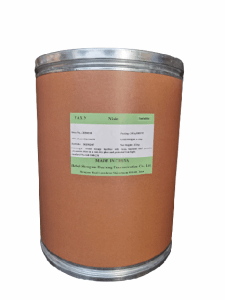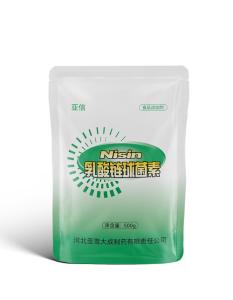

|
- Createtime: 2023-03-24
- Updatetime: 2024-10-18
Dosage Guidelines for Nisin in Dairy Products:
·Maximum Usage: The maximum allowable amount of nisin in dairy products is 0.5g per kilogram.
S·pecific Dosage: In practice, the dosage of nisin in dairy products may be adjusted according to the product's characteristics and production process. For example, in dairy products such as cheese, sterilized milk, and flavored milk, the usual dosage ranges from 1 to 10 mg per kilogram.
Methods of Using Nisin:
The use of nisin is relatively simple. It is typically dissolved in distilled water or cooled boiled water to make a solution of about 5%, which is then mixed evenly into dairy products. To achieve uniform mixing, a stepwise dilution method can be used. Additionally, nisin can be combined with other preservatives to enhance its preservative effect. However, it is important to note that nisin has a narrow antimicrobial spectrum, being effective only against Gram-positive bacteria. It has no effect on yeasts, Gram-negative bacteria, or molds.
Te use of nisin in dairy products has proven to be effective with clear dosage regulations. It not only extends shelf life and maintains product quality, but also improves taste and reduces non-enzymatic browning. Therefore, nisin is a preservative worth promoting and applying in the production and processing of dairy products.
-
2023-03-13
How is Nisin produced?
Nisin is a naturally occurring antimicrobial peptide that is produced by certain strains of bacteria, particularly Lactococcus lactis. The process of nisin production involves the ...
MORE -
2023-03-14
How is ε-Polylysine hydrochloride produced?
ε-Polylysine hydrochloride, also known as ε-PL or Poly(ε-lysine), is a natural biopolymer composed of ε-lysine monomers. ε-PL is known for its antimicrobial properties and has...
MORE
- Tel:+8618231198596
- Whatsapp:18231198596
- Chat With Skype







